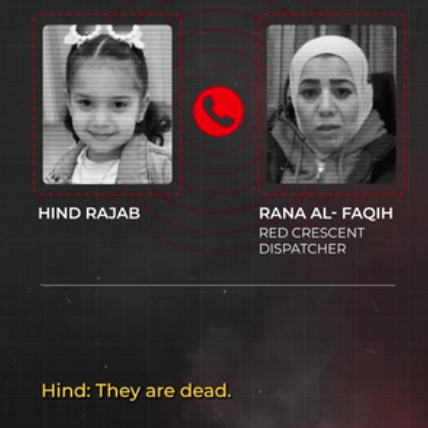Tanalís Padilla
The US appetite for war seems insatiable. Not to mention those of the last century, its actions in the last two years are more than revealing.
Its support for Ukraine was already wearing thin when, after October 7, it moved to support Israel’s genocide against the Palestinian people. As if that were not enough, with his bombings in Yemen, Iraq and Syria, he seems ready to open new war fronts.
In our America (that of Mexico), the northern neighbor is also waging a war that is no less harmful for not being without bombs. Like those in the Middle East, it is not new either. Direct and indirect belligerence was a constituent part of its imperial consolidation.
Latin America, as Greg Grandin has detailed in his book Empire’s Workshop, has been a laboratory for testing methods of domination including counterinsurgency, hard and soft power, as well as perpetual wars. Today this belligerence is carried out through economic blockades, covert operations and its so-called war on drugs. These are policies that produce immense suffering.
Because of its duration, scope and cruelty, the blockade against Cuba is well known, if not within the US, then in the rest of the world, which year after year demonstrates at the UN to put an end to it. Entire books could be written on the effects and evolution of these sanctions. Here we will just mention the basic framework. The US prohibits not only its companies from trading with the island, it prohibits any subsidiary of its companies from doing so; it prohibits the commercialization of any product, including pharmaceuticals, containing 10 percent of components – be they parts, raw materials or intellectual property – from the US; it prohibits any ship docking in a Cuban port from docking in a US port; it prohibits banks from processing economic transactions with the island, since the US has placed Cuba on its list of countries sponsoring terrorism.
Similar measures have been imposed on Venezuela since 2015, when Barack Obama, then president of the United States, decreed that the country was “an unusual and extraordinary threat to the national security” of the United States. In 2017 Donald Trump intensified these measures under his “maximum pressure campaign” aimed at overthrowing the government of Nicolás Maduro. The effects have been devastating. Since 2015 the Venezuelan economy lost on average $40 billion per year; from 2015 to 2020 PDVSA’s production (main source of social spending) dropped 87 percent; between 2016 and 2019 the resources lost due to this economic war would have been enough to import enough food and medicines for 45 years or to finance the public and private health system for 29 years (https://shorturl.at/fjxz4). After his visit to the country in 2019, the special rapporteur for the UN, Alfred de Zayas, estimated that 100 thousand Venezuelans would have died as a result of the sanctions. Two years later, the UN special rapporteur, Alena Douhan, detailed how the embargo on the oil industry, the secondary sanctions, the appropriation of Venezuelan assets abroad and the refusal of banks to deal with the country for fear of reprisals, have devastated the food, health, education and infrastructure systems and have led to a huge emigration.

The war without bombs now extends to Ecuador, where, under the pretext of confronting the current violence, the U.S. is strengthening its presence. Although the Ecuadorian Constitution prohibits foreign military bases, since 2019 US military aircraft have been allowed to use the airport in the Galapagos Islands. In 2020, shortly before the pandemic left the streets of Guayaquil piled with bodies, Quito agreed to pressure to expel 400 Cuban health personnel (as did Brazil, El Salvador and Bolivia – the latter under the coup government – expelling 10,000 brigadistas). The submission to imperial will continues now with the arrival of the head of the U.S. Southern Command, Laura Richardson, who arrived in Ecuador to direct actions against organized crime. In addition to offering a package of weapons in exchange for Ecuador delivering to Ukraine the material it had received from Russia, agents of the FBI, the DEA and secret elite groups coordinated from the US embassy were installed in the country.
As if these strategies didn’t sound conspiratorial, there are the recently – and not so recently – revealed operations to associate presidents like former President Evo Morales, Nicolas Maduro and Andres Manuel Lopez Obrador with drug trafficking. In September 2015, the Huffington Post published a report on Operation Naked King to implicate Morales and people close to him of collusion with drug traffickers. More recently we have witnessed AMLO being accused of receiving drug money in his 2006 campaign. For Venezuela, there is Operation Badger, revealed by the Associated Press, in which the DEA tried to infiltrate Venezuelan operatives to implicate Maduro and his close associates with drug trafficking. In response to these revelations, Wes Tabor, a former DEA agent, declared: “We don’t like to say it publicly, but we are, de facto, the world’s police”. Rejecting these illegal tactics, he continued: “We are not in the business of abiding by the laws of other countries when those countries are rogue regimes and the lives of American children are at stake.”
This, while the Israeli government – co-sponsored, funded and supported by the U.S. – murders a Palestinian child every eight minutes.
*Professor-researcher at the Massachusetts Institute of Technology. Author of Lecciones inesperadas de la revolución: Una historia de las normales rurales (La Cigarra, 2023).
Original text published in La Jornada on February 21st, 2024.
Translation by Schools for Chiapas.
Original text published on February 21st, 2024 in La Jornada.
English translation by Schools for Chiapas.
